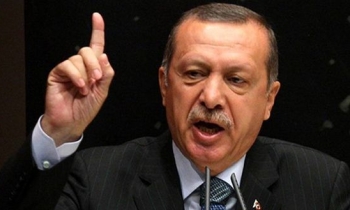LONDON: Business travelers in Europe may spot a new magazine this week at airport newsstands, alongside august titles like The Economist and The Harvard Business Review.
World Business, an unusual partnership between Haymarket Publishing, a London-based magazine house, and the international business school Insead, made its debut in Britain last week and is moving into Europe and other markets this week. The monthly magazine features a mix of articles on global business and management topics, written by academics from Insead and other schools, as well as journalists.
Is there room in business executives' briefcases for another publication aimed at a target audience already pursued by daily newspapers, dozens of weekly magazines, monthly glossies and quarterly journals - not to mention 24-hour television channels and Web sites?
Some U.S.-based publications have already been scaling back their international ambitions. Business Week, for instance, recently canceled its international English-language edition.
"What the world doesn't need is just another business publication," said Mike Hewitt, publishing director at Haymarket's management publications division, which also produces titles like Management Today.
World Business, he said, will be different, offering a truly global perspective, rather than American content supplemented with a few international articles.
"You look at covers of some of the European editions of American business publications, and it's Martha Stewart," Hewitt said. "And you think, 'Hold on, that has no relevance whatsoever for an international audience.'"
Similarly, he added: "Ideas about how to run a global business no longer begin and end in America. There's a need for some global thinking that perhaps wasn't there at the moment."
The introductory issue of World Business features a picture of a green automobile on the cover, with the headline, "In China, it's the year of the car."
Other articles include "The myth of the global company," in which Gordon Redding, an Insead professor, argues that cultural barriers still limit the development of truly global companies.
Gabriel Hawawini, dean of Insead, which has campuses in Fontainebleau, France, and in Singapore, said the content reflected the diversity of the school's alumni.
The articles also provide a showcase for the work of Insead academics, because of the way the partnership is structured.
Haymarket is producing the magazine under contract for Insead, which will send it free to 20,000 alumni, replacing IQ, a previous alumni publication.
Under the terms of the deal, Haymarket hopes to sell an additional 80,000 copies to the public, at a cover price of £5 in Britain, for instance, the equivalent of nearly $9.
Neither Hewitt nor Hawawini would disclose financial terms of the arrangement. Typically, most of the risk and potential rewards of such contract publishing deals are borne by the publisher, though the two parties sometimes share revenue if certain targets are met.
The introductory issue carries advertisements from "founder partners" like the Lexus division of Toyota. Hewitt said these partners might sponsor events alongside the magazine and business school but said they would have no influence over editorial content.
Hawawini said he was not aware of any other business schools that were producing magazines in similar arrangements. The Harvard Business Review, for instance, is produced by an in- house arm called Harvard Business School Publishing.
"Given the kind of editorial work needed to produce this kind of publication, this would not have been possible for us alone," he said.









